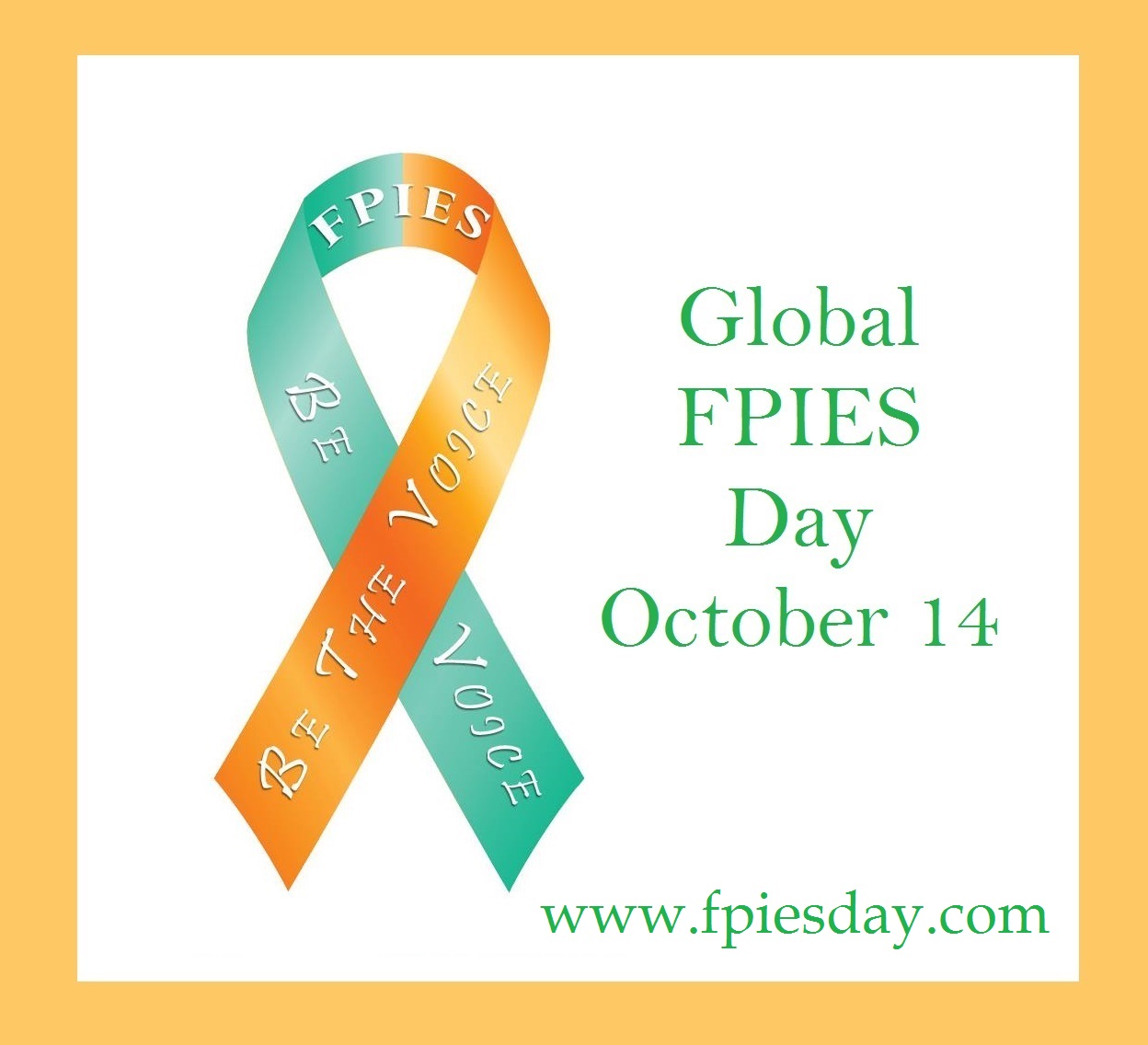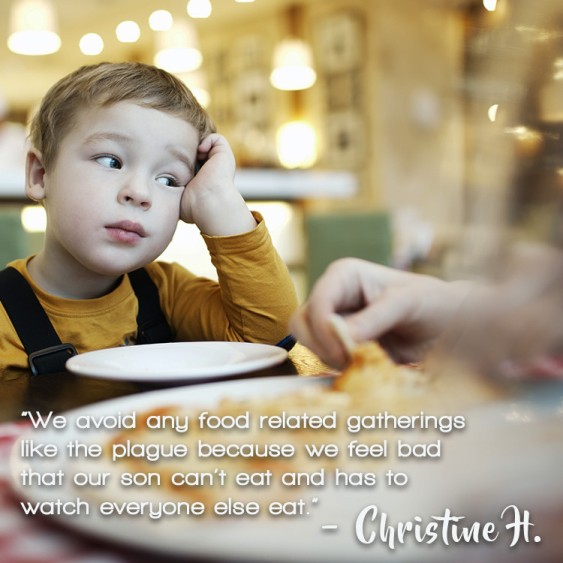
We, at The FPIES Foundation, love to follow the research! These are our top 10 picks for FPIES articles of 2019 (in no particular order). Each of these articles brings some new data or novel idea to the ‘table’. We are so thankful to all of the practitioners and researchers from all over the globe who are collectively furthering the understanding of FPIES.
- Food Protein–Induced Enterocolitis Syndrome: Increased Prevalence of this Great Unknown—Results of the PREVALE Study . Alonso, Sara Bellón et al. Food protein–induced enterocolitis syndrome: Increased prevalence of this great unknown—results of the PREVALE study Journal of Allergy and Clinical Immunology, Volume 143, Issue 1, 430 – 433. This Letter to the Editor was published in Jan. 2019 from Spain. “The PREVALE study is a prospective longitudinal study that includes live births in the aforesaid hospital from April 2015 to April 2016.” In this study, the authors report, “although it remains widely unknown, FPIES is a frequent syndrome. In our study, the total incidence is 0.7%”.
- Acute‐on‐Chronic Food Protein‐Induced Enterocolitis Syndrome in an Exclusively Breast‐Fed Infant. Ntoumpara M, Sotiriadou F, Fotoulaki M. Acute-on-chronic food protein-induced enterocolitis syndrome in an exclusively breast-fed infant. Clin Case Rep. 2018;7(1):71–73. Published 2018 Nov 13. doi:10.1002/ccr3.1905. This case report was published in Jan. 2019 from Greece. This article provides a clinical case of an infant who had an acute reaction to formula after experiencing chronic reactions through breastmilk. This furthers the awareness of the possibility of this type of reaction. The authors conclude with an important note, “Despite the existence of the possibility of FPIES caused by proteins passed through breast milk, we definitely support that breast‐feeding should be encouraged, with the exclusion of the offending food from the maternal diet.”
- When Food is Not Medicine: A Case of an Infant with Profound Hypovolemic Shock. Toal, M., Yakaboski, E., Feuille, E.,Nellis,M. 547: WHEN FOOD IS NOT MEDICINE: A CASE OF AN INFANT WITH PROFOUND HYPOVOLEMIC SHOCK. 2019 Critical Care Medicine. A case report published in Jan. 2019 from New York. This article brings to awareness the potential severity of chronic FPIES.
- Food Protein-induced Enterocolitis Syndrome: Data From a Multicenter Retrospective Study in Spain. Juan Díaz;Beatriz Espín;Oscar Segarra;Gloria Domínguez-Ortega;Javier Blasco-Alonso;Beatriz Cano;Ana Rayo;Ana Moreno. Food Protein-induced Enterocolitis Syndrome: Data From a Multicenter Retrospective Study in Spain. J Pediatr Gastroenterol Nutr. 2019 Feb;68(2):232-236.
This article published in Feb. 2019 from Spain highlights the potential increasing prevalence of FPIES, in both acute (mild-moderate-severe forms) and chronic presentations. - Emerging triggers of food protein-induced enterocolitis syndrome: Lessons from a pediatric cohort of 74 children in the United States.Blackman, Andrea C. et al. Emerging triggers of food protein–induced enterocolitis syndrome. Annals of Allergy, Asthma & Immunology, Volume 122, Issue 4, 407 – 411. This article was published in April 2019 from Texas. This study, identified 74 cases of FPIES during a 3-year period, found not only geographical differences in common FPIES triggers (noting rice was more common than dairy in their study) but also the increase in prevalence of multiple food FPIES, noting over half of the children had FPIES to multiple foods.
- Early onset food protein-induced enterocolitis syndrome in two breastfed newborns masquerading as surgical diseases: case reports and literature review. Bosa,L.,Martelossi,S.,Tardini,
G.,Midrio,P.,Lago,P. Early onset food protein-induced enterocolitis syndrome in two breastfed newborns masquerading as surgical diseases: case reports and literature review. J Matern Fetal Neonatal Med. 2019 Apr 25:1-5. An article published in April 2019 from Italy. This article highlights the diagnostic difficulties in FPIES and brings more awareness to providers to the potential that they may see FPIES in breastfed infants. - Severity scales of non-IgE-mediated gastrointestinal food allergies in neonates and infants.Yagi, Hisako et al. Severity scales of non-IgE-mediated gastrointestinal food allergies in neonates and infants. Allergology International, Volume 68, Issue 2, 178 – 184. This research article, was published April 2019 from Japan. Highlights the severity of gastrointestinal allergic conditions and discusses the importance of developing a severity scale for research and diagnosis of these allergic conditions.
- Innate immune activation occurs in acute food protein–induced enterocolitis syndrome reactions. Mehr, Sam et al. Innate immune activation occurs in acute food protein–induced enterocolitis syndrome reactions. Journal of Allergy and Clinical Immunology, Volume 144, Issue 2, 600 – 602.e2. A Letter to the Editor article published in May 2019 from Australia. This article brings to attention the emerging advances in research which have begun to show the potential role of the innate immune system in FPIES.
- Food Protein-Induced Enterocolitis Syndrome: Proposals for New Definitions.Miceli Sopo, Gelsomino M, Rivetti S, Del Vescovo E. Food Protein-Induced Enterocolitis Syndrome: Proposals for New Definitions. Medicina (Kaunas). 2019 May 28;55(6). pii: E216. Excellent review article (free/open access) published in May 2019 from Italy. In this article, Dr. Sopo and his team recognize the multiple presentations of FPIES and the need for further research to include all forms to best define this diagnosis thus increasing proper and timely diagnosis and treatments.
- A Rare Case of Fetal Onset, Food Protein-Induced Enterocolitis Syndrome. Ichimura S, Kakita H, Asai S, Mori M, Takeshita S, Ueda H, Muto T, Kondo T, Yamada Y: A Rare Case of Fetal Onset, Food Protein-Induced Enterocolitis Syndrome. Neonatology 2019;116:376-379. doi: 10.1159/000502717.
A case report article published in Nov. 2019 from Japan. This article explores the possibility of fetal sensitization in FPIES. The authors conclude: “This report might be helpful for prompt diagnosis and treatment and, furthermore, lead to elucidation of the pathogenesis and pathophysiology of FPIES.”
Visit our Medical Literature page for additional FPIES articles from 2019 and other years past.
This post was compiled and written by Joy Meyer, Co-Director of The FPIES Foundation.


